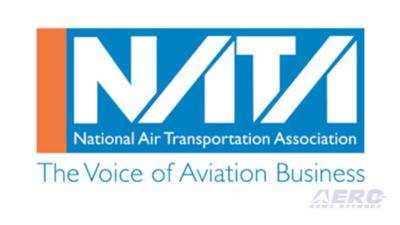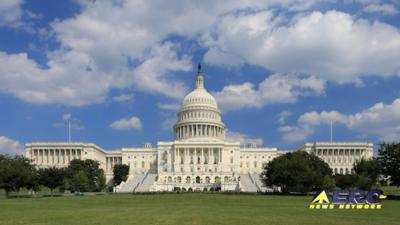Tue, Aug 09, 2022
Chutzpah on the Brink
The National Air Transportation Association (NATA) has issued a statement extolling the U.S. Senate’s passage of the Inflation Reduction Act of 2022. NATA has lauded tax provisions contained in the new legislation which seek—ostensibly—to incentivize production of renewable jet fuels.

NATA states:
“Just as business aviation closes distances, propels innovation, and supports vibrant economic growth throughout our nation, the commercialization and scale-up of sustainable aviation fuel will accelerate our industry’s progress to net-zero carbon emissions. The SAF tax credits included in the Inflation Reduction Act of 2022 are a crucial first step toward meeting the Biden Administration’s SAF Grand Challenge goal of 3 billion gallons of domestically produced SAF by 2030; equally crucial is the removal of regulatory roadblocks that hinder SAF participation in the Environmental Protection Agency’s Renewable Fuel Standard program. NATA applauds the U.S. Senate for taking action to incentivize SAF production, and we encourage Congress to work just as diligently to equip federal agencies, including EPA, with the necessary tools to support SAF production in line with industry demand,” stated NATA President and CEO Timothy Obitts.
NATA has long advocated for creation of a dedicated SAF Blender’s Tax Credit to stimulate investment in the nascent industry and provide economic parity with other renewable fuels. The Association endorsed the Sustainable Skies Act (S. 2263 and H.R. 3440) introduced in 2021, then worked with a comprehensive coalition of industry stakeholders to encourage inclusion of similar provisions in broader spending proposals. The Inflation Reduction Act of 2022 includes two years of such tax credits, valued at $1.25-$1.75 per gallon depending on percentage of lifecycle greenhouse gas emissions compared to fossil-based jet fuel. Beginning in 2025, the legislation creates three years of a Clean Fuel Production Credit with an enhanced value for SAF of up to $1.75 per gallon.

“NATA thanks Senate negotiators for including SAF in the clean energy provisions of the Inflation Reduction Act, and we recognize the tireless leadership of Sustainable Skies Act sponsors on this critical issue. Sustainable aviation fuel represents a lower-carbon, domestically produced energy source that will reduce aviation’s CO2 emissions, extend American global leadership, and support high-paying jobs. Today’s vote is another step toward bridging the gap between federal incentives for energy innovation and the associated costs of establishing a vibrant domestic SAF industry. The business aviation industry has already demonstrated a consistent demand for SAF; now we call on government leaders to adopt sound legislative and regulatory policies to foster consistent production.”
Since its founding in 1940, the National Air Transportation Association (NATA) has represented the interests of aviation businesses before Congress and federal agencies. NATA’s endorsement of the Inflation Reduction Act of 2022—though sincere—is apt to prove difficult to defend when middle and corporate America alike are forced to surrender to the IRS monies they formerly spent on air travel and aircraft acquisition and operation.
More News
Terminal Radar Service Area Airspace surrounding designated airports wherein ATC provides radar vectoring, sequencing, and separation on a full-time basis for all IFR and participa>[...]
Aero Linx: Utah Back Country Pilots Association (UBCP) Through the sharing experiences, the UBCP has built upon a foundation of safe operating practices in some of the most challen>[...]
From 2010 (YouTube Edition): Imagine... Be The Change... Inspire FROM 2010: One of the more unusual phone calls I have ever received occurred a few years ago... from Anousheh Ansar>[...]
(Pilot) Felt A Shudder And Heard The Engine Sounding Differently, Followed By The Engine Chip Detector Light On April 14, 2025, about 1800 Pacific daylight time, a Bell 206B, N1667>[...]
Also: AMA Names Tyler Dobbs, More Falcon 9 Ops, Firefly Launch Unsuccessful, Autonomous F-16s The Air Force has begun ground testing a future uncrewed jet design in a milestone tow>[...]
 ANN's Daily Aero-Term (05.07.25): Terminal Radar Service Area
ANN's Daily Aero-Term (05.07.25): Terminal Radar Service Area ANN's Daily Aero-Linx (05.07.25)
ANN's Daily Aero-Linx (05.07.25) Classic Aero-TV: Anousheh Ansari -- The Woman Behind The Prize
Classic Aero-TV: Anousheh Ansari -- The Woman Behind The Prize NTSB Prelim: Bell 206B
NTSB Prelim: Bell 206B Airborne-NextGen 05.06.25: AF Uncrewed Fighters, Drones v Planes, Joby Crew Test
Airborne-NextGen 05.06.25: AF Uncrewed Fighters, Drones v Planes, Joby Crew Test




